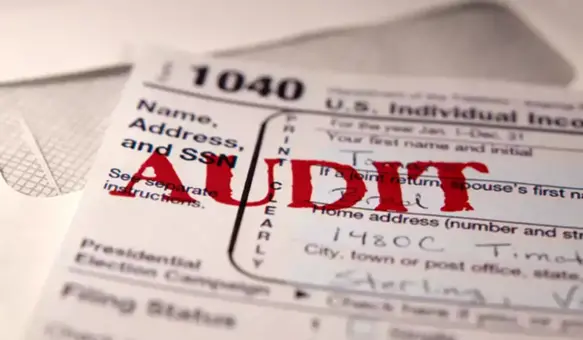A Complete Guide: How to File J-1 Visa Tax Return

If you’re a non-resident alien with a J-1 visa, you have the opportunity to work, study, and teach in the United States. But there’s one responsibility that comes with this opportunity: paying taxes. In this article, you’ll learn how to file a J-1 visa tax return.
J-1 Visa status
The J-1 Visa status (exchange visitors) provides an opportunity for qualified non-immigrant aliens to temporarily (from a few weeks to several years) reside in the United States and gain experience in the chosen field.
There are several programs available for exchange visitors:
- Au Pair
- Camp Counselor
- College and University Student
- Government Visitor
- Intern
- International Visitor
- Physician
- Professor
- Research Scholar
- Secondary School Student
- Short-Term Scholar
- Specialist
- Summer Work Travel
- Teacher
- Trainee
Do J-1 Visa holders have to pay taxes in the US?
Aliens in J-1 status have to pay taxes only on the U.S.-sourced income they earn during their presence in the country. How much you pay depends on various factors, for example, on the earned income, the state you live in, and if your home country has a tax treaty with the United States.
What is my residency status as a J1 visa holder?
To determine your residency status, you should see if you pass the substantial presence test. Most J-1 visa holders are considered non-resident aliens for tax purposes: J1 Summer Work and Travel, J1 Camp Counselors, J-1 Au Pairs, and J1 Interns/Trainees.
The difference between a non-resident and a resident alien is the following: non-resident aliens report US-sourced income only while resident aliens report their worldwide income.
How to file my J1 tax return?
To file your J-1 visa tax return, you have to file all the necessary forms correctly and meet the deadline, which is April 15.
Filing your tax return correctly is vital for your future Visa green card applications.
What documents do I need to file my J-1 tax return?
Before you start filling out the forms, make sure you have all the necessary documents (Your passport, Form DS-2019, Form W-2, Form 1042-S / Form 1099, SSN, or ITIN) and all the information (the dates when you come to the U.S. and when you leave the country, for current and previous years).
Where to send my J-1 visa tax return?
You should send your J1 visa tax return to the Department of the Treasury Internal Revenue Service of your state.
Are J-1 visa holders exempt from taxes?
If you are a non-resident alien, you’re exempt from paying for Social Security and Medicare taxes. Depending on your country of residence, you may also count on a tax treaty. Tax treaty provisions are unique for different cases. To make sure you do everything right and that you’re not missing anything, read the IRS article on Tax Treaty Benefits or contact our experts.
Are J1 students exempt from taxes?
The rule is the same for J1 students and any other J1 visa holders.
Forms J-1 Visa holders need to file
File Form 8843
All J1 visa holders have to file Form 8843, Statement for Exempt Individuals and Individuals with a Medical Condition. It doesn’t matter if you earned a US-sourced income or not during the tax year—you still should file this form.
Usually, the due date for filing Form 8843 is April 15, but there might be changes due to Covid-19.
To fill out the form, you’ll need the following basic information:
- Your personal information (from your passport)
- Your Social Security Number (SSN) or Individual Taxpayer Identification Number (ITIN)
- Your visa information
- The number of days you were present in the United States in the last three years and the tax year
Form 1040-NR-EZ
Form 1040-NR-EZ, also known as U.S. Income Tax Return for Certain Nonresident Aliens with No Dependents, is your tax return as a J-1 visa holder. You should file this form in order to assess and file your local and federal taxes.
When filing Form 1040-NR-EZ, make sure that:
- You have no dependents of your own, and you’re not claimed as a dependent on someone else’s tax return.
- Your only U.S. source income was from wages, salaries, tips, refunds of state and local income taxes, scholarship or fellowship grants, and nontaxable interest or dividends.
- Your taxable income (line 14 of Form 1040-NR-EZ) is less than $100,000.
Form W-2
Form W-2, Wage and Tax Statement should be filed if you earned U.S.-sourced income. Usually, an employer files Form W-2 for each employee. This form includes information about Income, Social Security, and Medicare tax that is withheld.
Your employer should provide you with Form W-2 after the end of the tax year (December 31.) The deadline is January 31.
Form 1042-S
Form 1042-S, Foreign Person's U.S. Source Income Subject to Withholding, exists for reporting payments made to non-resident aliens. Like Form W-2, it should also be submitted by your employer. The Form 1042-S must be filed by March 15 of the year following the calendar year in which the income subject to reporting was paid.
Form 8843
Regardless of whether you have earned U.S.-sourced income, you still need to file Form 8843, Statement for Exempt Individuals and Individuals with a Medical Condition. It is a statement you file for the U.S. Government if you are a certain type of non-resident alien for tax purposes.
Tax refunds for J-1 visa holders
How to claim a J-1 tax refund?
J-1 visa holders are entitled to claim tax refunds on both federal and state taxes. To do that, file your tax return. It’s hard to say how long it’ll take for you to get your refund, as timelines are different for each refund.
How can I get my J1 tax refund faster?
To get your J1 tax back faster, make sure you file before the deadline: April 15. This way, it’s more likely that your return will be processed faster.
Tax exemptions for J1 visa holders
You will be exempt from Social Security and Medicare taxes as you are a non-resident alien. Depending on your country of residence, you might be entitled to tax treaty benefits.



